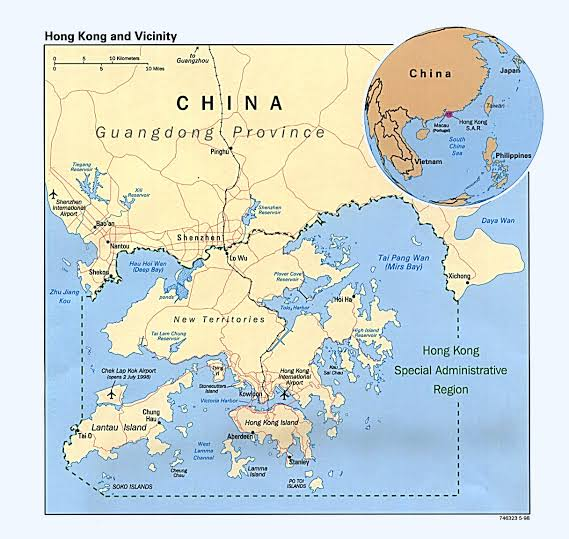China’s new election law
Hong Kong and China relationship
- Hong Kong, a former British colony, was returned to the People’s Republic of China in 1997 under a policy known as “one country, two systems,” which promised the territory a high degree of autonomy.
- As a Special Administrative Region (SAR), Hong Kong allows freedoms not enjoyed in mainland China, including freedom to protest and an independent judiciary.
- Under the Basic Law — the Constitution that has governed Hong Kong since 1997 — the SAR is a part of China but enjoys “a high degree of autonomy” and “executive, legislative and independent judicial power”, except in foreign policy and defence.
- It also says “the socialist system and policies shall not be practised” in Hong Kong for 50 years.
- But that autonomy, guaranteed under the Basic Law, expires in 2047. The Sino-British Joint Declaration does not state what will happen in 2047 after that agreement officially ends.
Location

- Located on the southeast coast of China, Hong Kong’s strategic location on the Pearl River Delta and South China Sea has made it one of the world’s most thriving and cosmopolitan cities.
Why in News?
- The National People’s Congress (NPC) of China, the ceremonial legislature in Beijing, has recently approved a decision to amend the Basic law, and the electoral system to ensure that people opposed to the Chinese Communist party and its rule over Hong Kong are ineligible to sit in the city’s parliament.
- It will dilute the proportion of democratically elected lawmakers in Hong Kong.
Mounting Pressure
- Hong Kong’s pro-democracy opposition groups have seen the change as another move that diminishes the space for dissent and erodes freedoms guaranteed previously under the terms of the 1997 handover.
- In recent times new laws and regulations in Hong Kong, including a draconian national security law and a concerted campaign of protest-related prosecutions, have resulted in almost every significant voice of opposition being in jail, on trial or in exile overseas.
U.K.’s Response
- Responding to the sweeping changes in Hong Kong’s electoral system, the U.K. said that China is no longer compliant with Hong Kong’s Joint Declaration.
- The Sino-British Joint Declaration was signed before Britain handed Hong Kong back to China in 1997 and was designed to allay fears about its future under Beijing’s rule.
- Britain has been a strong critic of China’s crackdown on pro-democracy campaigners in Hong Kong, and angered Beijing by announcing a visa scheme offering millions of its residents a pathway to U.K.’s citizenship.
Reference:
Subscribe
Login
0 Comments
